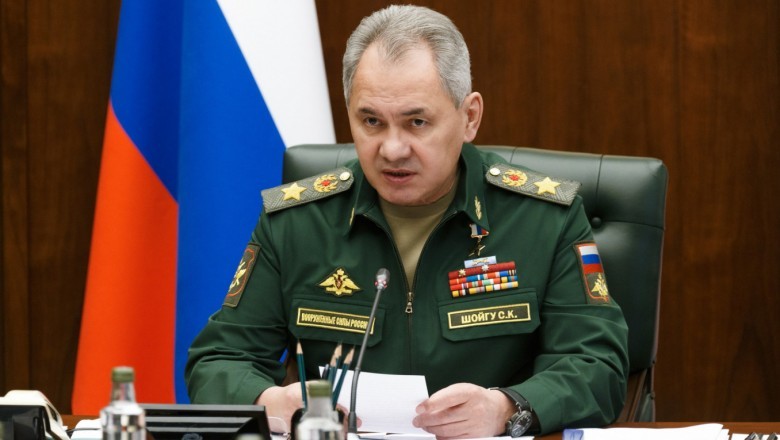
views
In a surprising turn of events, Russia's Defense Ministry has announced preparations for the handover of military hardware by the infamous private military company, Wagner. This development comes after Russian President Vladimir Putin acknowledged the presence of Wagner mercenaries, characterizing them as patriotic individuals who may have been misled into engaging in criminal activities.
Alongside this announcement, the Federal Security Service (FSB) declared the dropping of criminal charges against participants in the recent mutiny, further reshaping the landscape of this unfolding narrative.
Transitioning Away from Mercenary Forces
The decision to allow Wagner members to hand over their military hardware marks a significant shift in Russia's approach to non-state military actors. Putin's remarks, highlighting the possibility of joining the regular military or returning to their families, reflect a desire to reintegrate these individuals into a more conventional structure. This move not only underscores the government's commitment to addressing the situation with a measured response but also acknowledges the complex dynamics surrounding the Wagner group.
Mitigating Criminal Charges
Simultaneously, the FSB's decision to drop criminal charges against those involved in the mutiny during the weekend demonstrates a nuanced approach to justice. Following a thorough investigation, the FSB concluded that the individuals involved were no longer actively pursuing criminal activities. This decision not only indicates a willingness to grant clemency but also offers an opportunity for reconciliation and reintegration into society.
Implications for Security and Stability
The transition of Wagner members away from mercenary activities and the dropping of criminal charges hold broader implications for Russia's security and stability. By addressing the issue in a comprehensive manner, the government aims to prevent the proliferation of unauthorized military forces, ensuring the monopoly of power lies with the regular armed forces. Moreover, this approach helps dispel any potential confusion or uncertainty surrounding the status and loyalty of various armed groups operating within the country.
Collaboration with Belarus
With discussions about potential destinations for Wagner members, including the possibility of relocating to Belarus, it becomes clear that close collaboration between Russia and its neighboring countries is integral to regional security. Such cooperation ensures that the movement and activities of former mercenaries are closely monitored, minimizing the risks posed by their potential involvement in illicit activities.
Looking Ahead
As preparations for the handover of military hardware by Wagner commence, Russia finds itself at a critical juncture. The government's willingness to address the situation through diplomatic channels, provide avenues for reintegration, and drop charges against mutiny participants sets a precedent for handling similar scenarios in the future. This approach strikes a balance between upholding justice and security while allowing for opportunities for redemption and rehabilitation.
Above All
The ongoing developments surrounding Wagner's handover of military hardware, coupled with the dropping of criminal charges against mutiny participants, highlight Russia's commitment to addressing complex security challenges. By navigating this situation with measured responses, the government aims to ensure the stability of its armed forces, mitigate potential security risks, and create avenues for reintegration. As this new chapter unfolds, Russia's approach offers valuable insights into the evolving dynamics of non-state military actors and the complex issues they pose for national and regional security.
Disclaimer: The information presented in this article is based on the available reports and official statements at the time of writing. Please note that the situation may evolve, and further updates or developments might occur.




















Comments
1 comment
Russia is a great Nation.